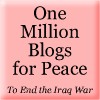"Torture is the most ancient of the fine arts, older than the so-called art of love, and certainly richer and more varied. The art of love is nothing but a dozen positions and a couple of dozen refinements, but torture has a thousand varieties. All animals can couple, but man is the only animal that tortures. The essential ingredient of torture could not be more simple: all you need is a collective, constituted group operating on a man in isolation. The group, as we know, is stronger than the individual, and torture is the first way of proving it. Torture is also the first of the experimental sciences. All it calls for is a pair of bare hands and a gang to hold the patient down and assist in the experiment. Furthermore it is an art which, like all the primitive arts, dance, song, story-telling, poetry, requires nothing but the body. As for the art of love, well, the zones of pleasure are very much fewer than the zones of pain, and pain is more intense and can last much longer. Pleasure is not the opposite of pain; it is a different thing altogether, poorer and more limited."
This excerpt (pp. 299-300) is from the sadly-neglected novel Incognito by Romanian author Petru Dumitriu. Dumitriu, who experienced WWII and the post-war Soviet bloc firsthand, published the novel in 1962. His novel is semi-autobiographical.
The speaker is one Major Bulz, described by the novel's protagonist as "the only torturer I have known at all well." Major Bulz's left hand is deformed: webbed and fused fingers. "He hated the world for having given him a hand like that."
In just a few lines, Dumitriu deftly captures some of the characteristic features of both torture and torturers: the utter simplicity of torture as an "art," the multiple ways to cause pain, the torturer's grudge against the world that fuels his activities in the torture chamber.
Friday, June 29, 2007
The Torturer Speaks
Posted by
The maiden
at
4:04 AM
![]()
Labels: pain and pleasure, Petru Dumitriu, torturers
Subscribe to:
Comment Feed (RSS)





|